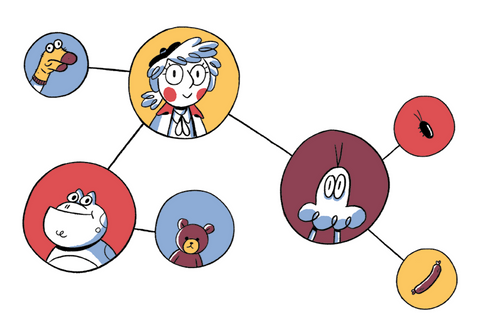Have you ever been to Manchester? It’s a special city, but it also has a reputation for being a grey and drizzly place.
The morning of 8th May 2013 began in exactly such wet and colourless style. But one massive piece of Mancunian life was about to change forever.
This was the day that one of the greatest leaders in living memory announced his retirement.
As I sat on the top-deck of my bus into the city for an otherwise normal day’s work, I noticed a few warm tears on my face. It felt, in my heart, like a family member had died. Where an inspirational figure had stood for most of my life, there was suddenly a void. I was grieving, and (stupidly, I guess, given he was 71 years old), I was in shock.
This was the day that Sir Alex Ferguson stepped down as Manchester United manager, following 26 years of incredible success. Since then, things haven’t gone well for the club; United are no longer a title-winning machine. The never-say-die team that wowed football fans around the world when they clinched an unprecedented treble of major trophies in 1999 began unravelling as soon as Fergie left, and five managers since have failed to live up to the expectations he set.
No organisation succeeds because of one person alone; there’s no single right way to lead, and you’re probably not on your way to becoming the next Alex Ferguson, but let’s be clear: good leaders make a difference.
This article will help you reflect on the traits and behaviours that often characterise effective leadership – it’s your choice which ones you put into practice.
What are the qualities of an effective leader?
Let’s get something straight: there is no single, definitive list of qualities that mark an effective leader. That’s because there are many different – equally valid – ways to lead, and a million different contexts in which leadership happens.
If you came here for a simple checklist, you’ll be disappointed – instead, we’ll look at some of the more interesting leadership truths as I see them. These are based on studying the stories that great leaders tell about their own success, the observations of experts, and speaking to ordinary people who’ve been led well (or badly) themselves. This is hugely subjective stuff, so your views may well vary (and I’d love to hear about them if they do).
Here's one more important point before we continue: every strength has a shadow side. In every attribute that might make someone a good leader, there’s a seed of potential weakness. For example, charismatic visionaries can be vulnerable to deluded grandiosity and emotional isolation, and the line between decisive and dictatorial can be easy to miss. Because of this, there’s one meta-quality that probably matters more than anything else if you want to lead well – self-awareness.
Having said all that, let’s explore five useful ways of thinking about effective leadership in more detail.
Think long term, and commit bravely to your beliefs
There’s a lot of talk about agile leadership these days, and of course it’s important to be comfortable with (and responsive to) change. Indeed, one of Alex Ferguson’s leadership maxims is “never stop adapting”, and Pip community member Craig Dial believes a good leader “trusts in their ability to respond to what happens over their need to control what happens.”
But that’s not an excuse for not having any sense of vision. When Ferguson started out at United, he had a clear view of the future he wanted to create – building a pipeline from the youth team to the senior team so players would grow up together and forge a genuine team spirit. This was about strategy, but it was also about identity – it was about respecting the history and meaning of the organisation he’d been asked to lead. “You could say it was brave, but fortune favours the brave,” he says.
You should never cling to beliefs in the face of evidence that proves them wrong, but the most effective leaders know that the most impactful change takes time. In our impatient world, that means you need the bravery to weather some discomfort in the short term, and the conviction to make solid strategic decisions amidst pressure for immediate results. Don’t underestimate how tough that can be.
Observe carefully, and be open to unexpected insights
Ferguson talks about the value of stepping back a little from the day-to-day action, delegating key responsibilities, and using this extra distance to assess what’s going on. When he was persuaded to be a little less hands-on running training sessions early in his career, he found that:
“I became more aware of a range of details, and my performance level jumped… Sometimes I could even tell that a player was injured when he thought he was fine.
“I don’t think many people fully understand the value of observing… The ability to see things is key—or, more specifically, the ability to see things you don’t expect to see.”
This notion of zooming out so you have the perspective to notice the most important details is echoed by Ed Catmull in Creativity Inc (a brilliant book detailing the secrets of Pixar’s success). In his words:
“There is the problem you know you are trying to solve – think of that as an oak tree – and then there are all the other problems – think of these as saplings – that sprouted from the acorns that fell around it. And these problems remain after you cut the oak tree down.”
When’s the last thing you discovered something that surprised you in your organisation? And what did you do with that information?
Actively build trust, and stay consistent
“He who does not trust enough will not be trusted.” — Lao Tzu.
“The best way to find out if you can trust somebody is to trust them.” — Ernest Hemingway.
Trust is perhaps the most essential force in effective teams and organisations. When individuals trust one another – they collaborate better. When customers trust a brand, they pay more for it. And without trust, you can only lead by force, which arguably isn’t really leadership at all.
There are two important dimensions of trust-building for leaders:
- You need to trust the people doing the work to deliver – you’re here to give people clarity of purpose and direction, not to micromanage or spy on them. Putting trust in people breeds trust in you.
- You need to be trustworthy – that means keeping promises you make, matching your day-to-day actions with your high-minded words, and not confusing people with unpredictable behaviour or demands.
On the first point, Pip community member Abdul says “ensure that your team knows what to do and have the ability to do it, then let them do it”. This is much easier if you follow fellow Pipster Sam Evans’s advice: “Hire people better than you”.
On the second point, the BBC’s Dan Ramsden adds:
“People will trust a boss to make decisions when they show competence. So, remind people what you’re good at. Competence is inspiring. Don’t show off. But be willing to demonstrate your expertise. This becomes evidence for why people should follow your lead. And competence in one area will create a 'halo effect' where the trust and respect extends from core areas of strength to trust in more contexts.”
Be confident, but humble
Author and organisational psychologist, Adam Grant, says: “what we need in leaders is not confidence, but confident humility. It's being secure enough in your knowledge to recognise your ignorance – and secure enough in your strengths to acknowledge your weaknesses.”
This contrasts, at one extreme, with blind arrogance, where leaders trust their own judgement to a pathological degree and end up making bad decisions, then missing the opportunity to change course in the face of evidence that an idea or assumption was flawed.
At the other extreme is debilitating doubt – this is where a leader lacks confidence in themselves, but has some understanding of the risks inherent in the choices they’re supposed to confront. This combination of self-doubt and contextual knowledge can be paralysing at worst, and can unhelpfully slow-down decision making at best.
The ideal stance – confident humility – means having a healthy base of self-belief, along with confidence in your organisation’s capabilities. It also means being willing to admit what you don’t know, being open to surprising or inconvenient information, and being able to respond quickly and decisively when assumptions are proven wrong or something important changes in the world around you.
How do bad leaders behave?
People are often better at remembering and describing what’s wrong than what’s right – or at least more animated in their responses – so I was curious to explore what bad leadership behaviours people in my networks had witnessed.
Anthropologist and market researcher Erik Winther Paisley focussed on the dangers of inconsistency, and noted that bad leaders struggle to inspire coherent action:
“Moving goalposts, veering radically off original mandate or stated intention without explanation or even acknowledging the shift, opaque and mercurial decision-making, inability to 'rally' employees around a plan.”
I also heard how easily people can be alienated by empire builders; these are the type of leaders who make decisions primarily to consolidate their own power and advance their own careers. I’m sure most of us have encountered someone like this before.
Refreshingly, Pip community member Linda Whitesell encouraged a more holistic view:
“I do not believe the people are at fault. There is something in the system that allows poor behaviour to persist. I also do not believe everyone who climbs the corporate ladder must become a leader. We need good managers, too.”
You can read more about the difference between leaders and managers here.
There are other important and valuable aspects of leadership that I haven’t discussed here – you can browse and bookmark our Leadership articles feed if you want to go deeper.
Don’t forget to take care of yourself
Leaders are often workaholics. Leadership roles come with above-average levels of pressure and sometimes-scary levels of responsibility.
Whatever advice resonates with you about leadership, none of it matters if you’re burned out or unwell.
Human beings need rest. They need things that nourish their souls. They need to be able to switch off.
So, if you want to be a more effective leader, please never feel guilty for looking after yourself. You deserve it, and you owe it to your family, friends, and the people you lead.
Incredibly, it’s 23C and sunny in Manchester today, so now it’s time for me to file this copy and head outside ☀️ 👋
You can Tweet me @joelstein or find me in the Pip Decks Slack space if you’d like to discuss any of the issues covered here.









